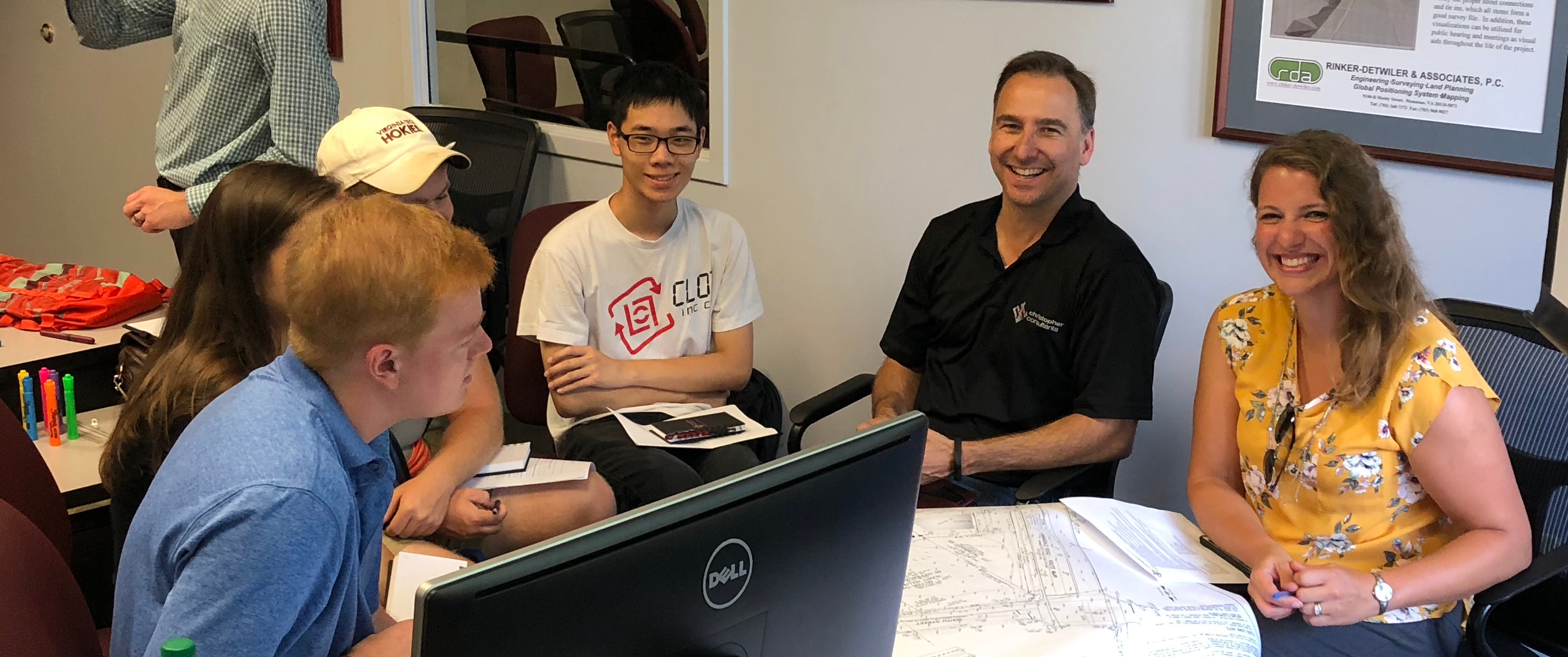About SLD

Our program was created out of need recognized by our faculty and industry partners for more adaptive, highly skilled land development engineers with expertise in sustainable design and coordination. Students in our program learn about conceptual designs, comprehensive plans, grading, erosion and sediment control, and stormwater management. They also learn how principles of sustainability are interwoven within the context of a site plan and a larger comprehensive plan, which are critical when considering how new development or redevelopment contributes to community, regional, and global societal needs today and in the future.
Graduate students in our program leave with multiple skill sets, including:
● effectively applying principles of sustainability to complex land development projects.
● responding to and managing overlapping needs and competing design criteria.
● explaining the effects of particular types of development on transportation systems, utility systems, social-economic systems, and environmental systems.
Need for the Bowman Sustainable Land Development Graduate Program
The growth in population nationally, and globally, is already increasing pressure on our overburdened and aging infrastructure. At the same time, some municipalities are experiencing a decline in population, requiring local municipalities to right-size their infrastructure systems. Our Sustainable Land Development graduate program prepares land development engineers for these complex challenges at both the regional and site development scale.
In Virginia, for example, urban renewal and the urbanization of places like Tysons Corner and Reston, present great opportunities for land development engineers to create more vibrant urban centers and more sustainable economic growth from older, under-utilized, under-planned, existing communities. Students in our program have the flexibility to study sustainable development projects, such as:
● the use of more multi-modal transportation options that are pedestrian friendly.
● inter-connected street networks.
● underground, modern, smart utilities; modern stormwater systems that minimize both flooding and environmental impact.
● the use of green infrastructure to meet environmental standards.
● evolving practices in design to create infrastructure that serves multiple functions.
Land Development Design Initiative (LDDI)
The long-term growth and popularity of the undergraduate Land Development Design Initiative (LDDI) program at Virginia Tech has demonstrated the need for a graduate program, with more emphasis on teaching and research about the complex aspects of sustainable land development.
LDDI was created in 2006 as a collaboration between land development practitioners and academics to improve land development design education and increase interaction between practitioners and students at Virginia Tech. The LDDI program has now grown to include 5 separate courses focused on land development, and includes a Sustainable Land Development course focused on sustainability, using rating systems like LEED and Envision.
LDDI boasts a 100% post-graduation job placement rate for over 1,000 students since inception. The program generally includes up to 50 sponsoring companies and municipalities, and involves practitioners in teaching, mentoring, and social activities. LDDI is the only program of its kind in the nation. Students in the Sustainable Land Development graduate program are welcome to participate and take advantage of the well-established LDDI program and events.


